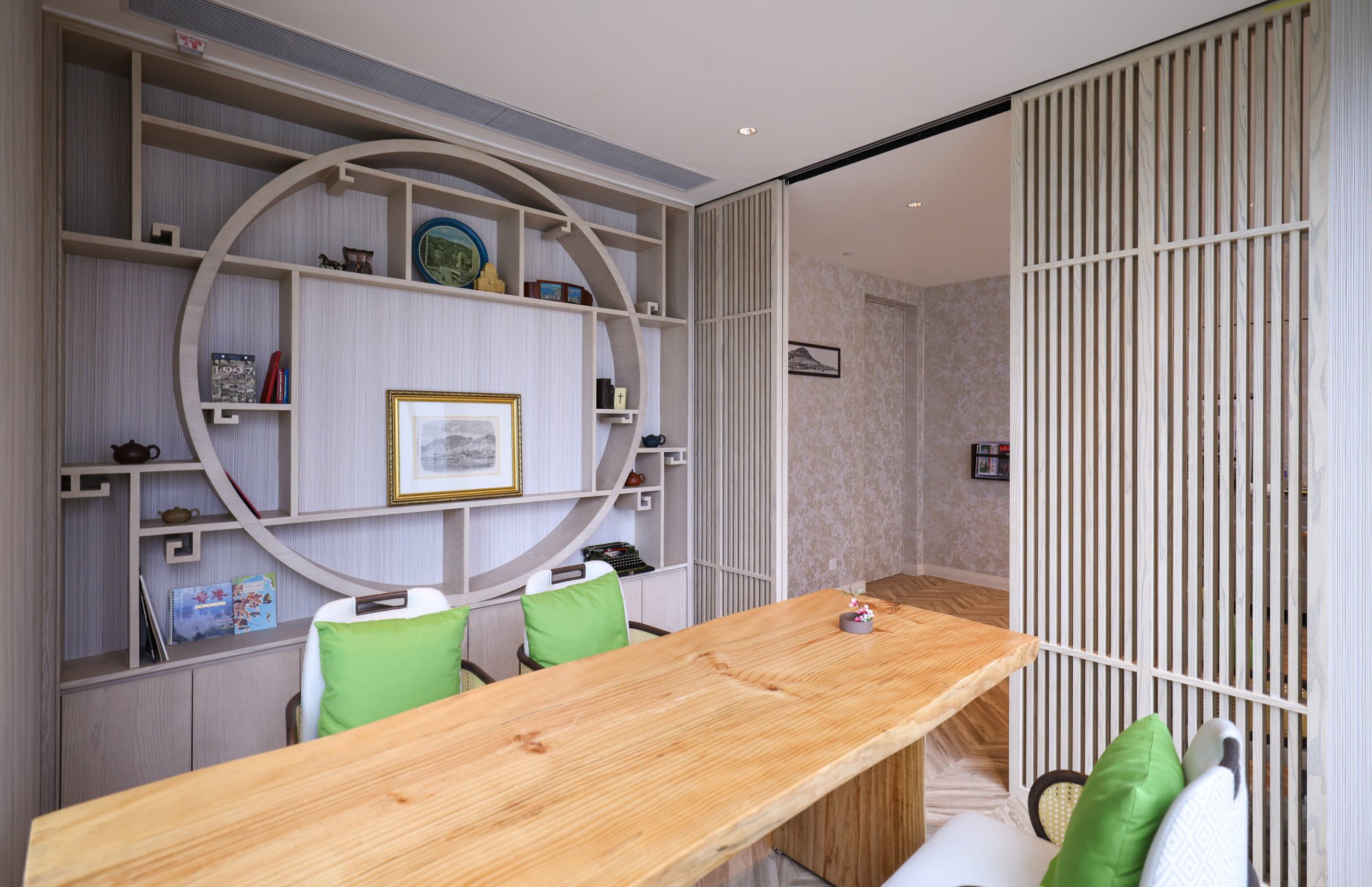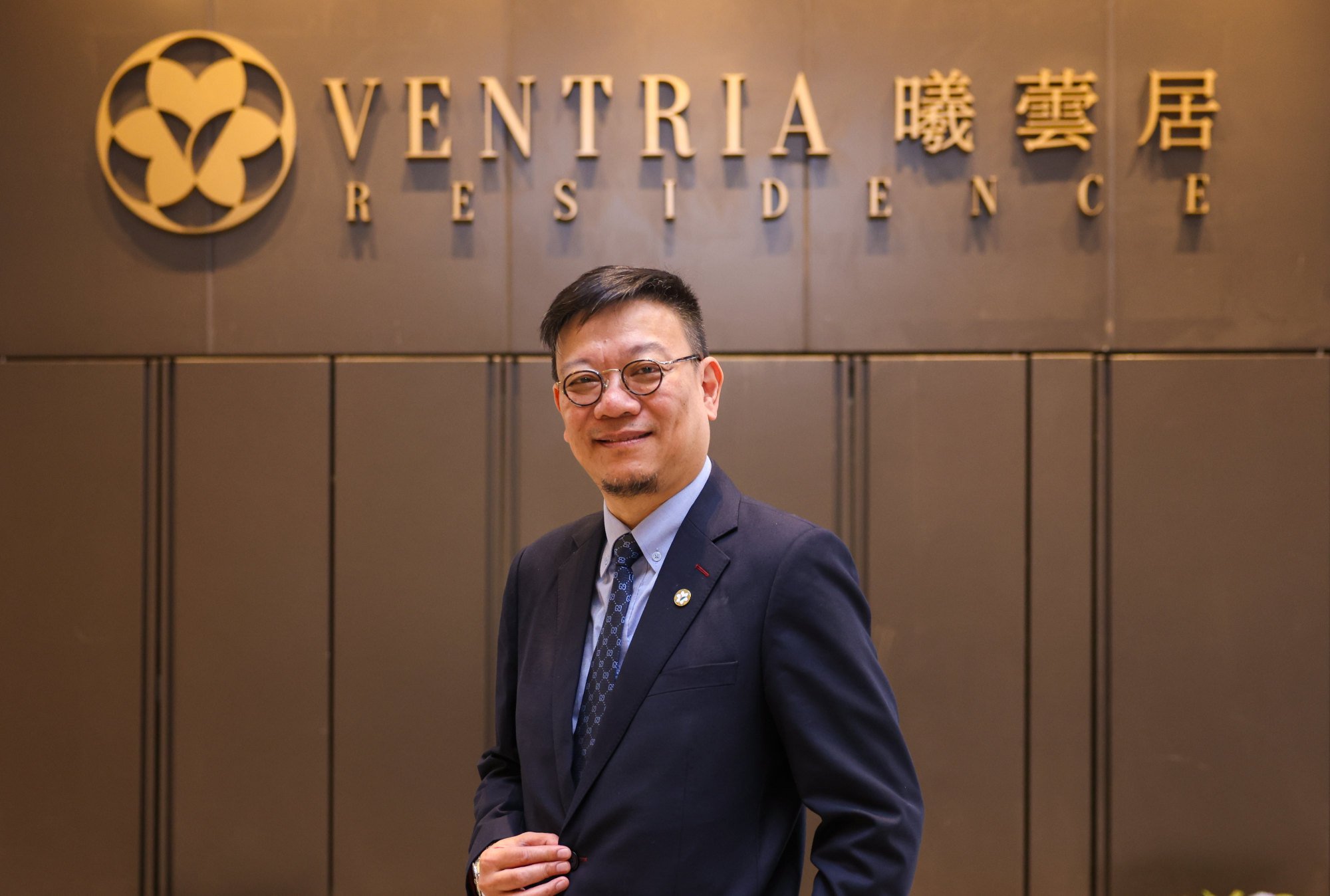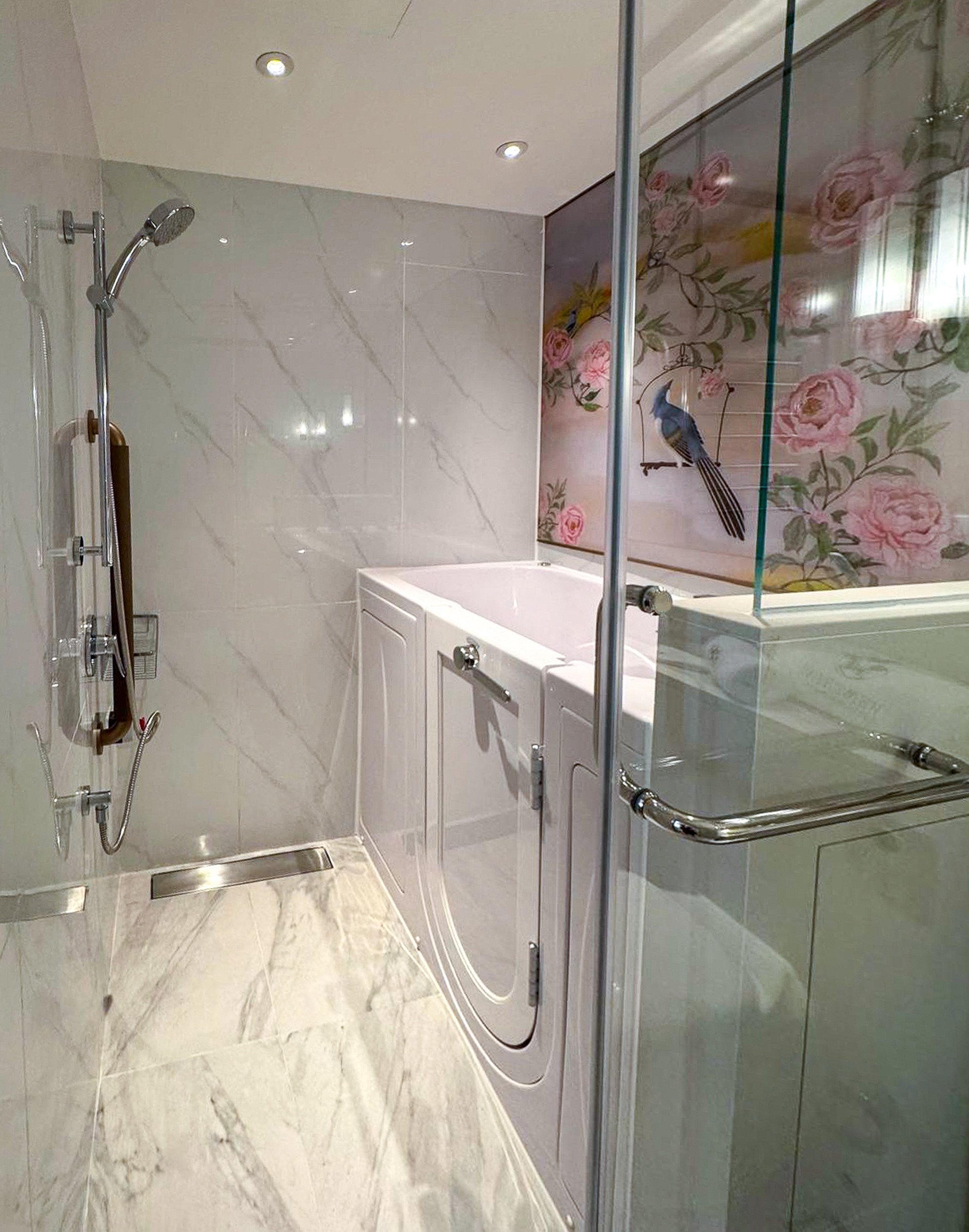Hong Kong’s first private residence for the elderly is set to open, offering a racecourse view in upmarket Happy Valley and tailor-made healthcare services, but analysts have called for policy incentives to boost the supply of such housing as the population ages.
Ventria Residence, opening on Tuesday next week, is a 21-storey hotel-styled residence providing 168 units between 262 sq ft and 695 sq ft each. Flats on 11 floors are reserved for those who are healthy and require little assistance in daily life, while another seven floors operate as a care home serving those who are frail. Two of those floors are reserved for dementia patients who need special attention.
The site offers a wellness centre, pool, salon, gym and rehabilitation rooms among other facilities.
Do you have questions about the biggest topics and trends from around the world? Get the answers with SCMP Knowledge, our new platform of curated content with explainers, FAQs, analyses and infographics brought to you by our award-winning team.
“The demand for senior housing is huge in Hong Kong,” Joe Sham Ka-hung, CEO of Ventria Residence, said.
Sham noted the project was in line with the government’s call to develop the “silver economy” – the market catering to the needs of elderly Hongkongers.
“The provision of care services for the elderly cannot only depend on the government ... It is necessary for private businesses to enter the market,” he said.

The city had about 1.68 million people aged 65 or above last year, according to official statistics, accounting for 22.4 per cent of the 7.5 million population.
The number of older residents is projected to increase to 2.74 million by 2046, accounting for 36 per cent of the population, meaning more than one in three people will be elderly.
Sham said his company was targeting about 1 per cent to 2 per cent of the population seeking high-end housing designed for the elderly but which was limited in the city.
Ventria Residence, a collaboration between the Chevalier Group and Hong Kong-Macao Conference of Seventh-day Adventists, was following a business model already practised in the United States and Japan, he said.
Residents must buy debentures priced at between HK$7 million (US$899,070) and HK$18 million depending on the size of the unit. Residents must be 60 or above and also pay a one-off membership fee of HK$100,000, as well as a monthly fee of at least HK$55,000, which covers utilities, food, housekeeping and nursing.
Sham said the occupancy rate of the 68 flats for healthy residents, which have kitchens and bathrooms, stood at about 20 per cent. Most of the residents were women and in their seventies or eighties, without children living in Hong Kong.

Noble Law Po-ka, director of nursing at the residence, said a team of professionals including medical staff, therapists and social workers provided healthcare and social services for the residents.
The floors reserved for elderly with dementia are equipped with technologies such as a facial recognition system that alerts staff to wandering residents, and also features a garden with flowers chosen to stimulate dementia patients’ sense of sight and smell.
Looking forward, Sham said the company would consider developing projects to meet the needs of other groups, including less well-off ones, as well as expanding in the Greater Bay Area, which links nine Guangdong cities, Hong Kong and Macau.
Experts and residents have called for more housing options for the elderly beyond care homes or moving in with families as the population grays and younger people move overseas.
The Hong Kong Housing Society, a non-profit builder, has launched three projects under its Senior Citizen Residences Scheme, providing more than 800 flats for middle-income residents aged 60 or above.
The flats are designed for older people, and the operator offers professional care services and social activities under a “lease for life” arrangement. Applicants must meet certain financial criteria and pay a lump sum contribution, as well as monthly service fees.

Another non-subsidised housing project for the elderly operated under the society, Tanner Hill in North Point, offers 588 flats for lease only.
Professor Yau Yung of Lingnan University’s department of sociology and social policy said authorities should offer more incentives to private developers seeking to build such projects, including lower land prices and taxes on profits.
The demand for such homes among residents could also be boosted through the exemption of the stamp duty, he added.
Dr Lawrence Poon Wing-cheung, a former member of the Town Planning Board, said the government could specify the provision of housing units for the elderly in its land sale terms stipulating supply for less well-off residents.
“Housing tailor-made for the elderly offers an alternative option for the city’s seniors,” Poon said.
More from South China Morning Post:
- Hong Kong businesses embrace potential of silver economy with more services, tech for rising number of elderly
- Hong Kong’s labour shortage to hit 180,000 by 2028 amid city’s rapidly ageing population
For the latest news from the South China Morning Post download our mobile app. Copyright 2024.





